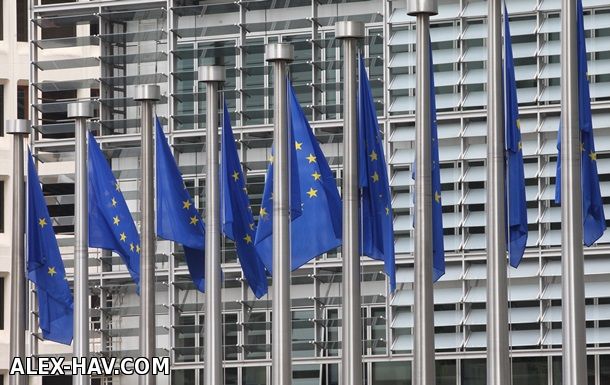10:17 Why the EU to create an energy alliance | |

The new composition of the European Commission (EC) to start work November 1, 2014, there is not only the Commissioner (Minister) for Climate and Energy - Spaniard Miguel Arias Cañete. Slovak Maroš Šefčovič occupies the executive body of the European Union Deputy Chairman on Energy Union. Earlier this post was not. Its appearance suggests that the creation of such a union would be one of the most important tasks of the new government of the EU, which is to run for five years. February 25 Shefchovich and Cañete jointly presented their ideas in Brussels on how to become a pan-European energy market and energy. National differences energy networksThe single market for goods, services and labor in the European Union and established acts. But in the field of energy still reigns fragmentation: each of the 28 EU countries in this area holds its own policies. Moreover, this fragmentation in recent years has increased even as Germany, for example, boosted by developing renewable energy and nuclear power turns off, and France continues to rely on nuclear power plants. Still, the key problem is national isolation energy networks, whether power lines or pipelines. In addition, the government of each country or by importing energy, independently negotiate with sellers, and this weakens their bargaining position. If EU states were together, it would reduce the purchase price and increase the efficiency of energy supply. According to Miguel Arias Cañete, "Europe is losing up to 40 billion euros on the fact that there has intertwined with each other markets." The objective of reducing dependence on Russian gasNational differences energy markets turns not only the high cost and low efficiency, but also a high degree of dependence on certain suppliers. Here we are talking primarily about Russia, which is the EU's largest supplier of both gas and oil, and coal. So, it accounts for about a third of consumption in the EU natural gas. Therefore, any disruption in supplies from Russia, whatever reasons they may have been caused, threaten energy security of the EU and especially in countries such as Finland, Estonia and Bulgaria, which is almost completely dependent on Russian gas. Such dependence is considered in Brussels, it is necessary in whatever was reduced. In the present Maroš Šefčovič Miguel Arias Cañete and terms of the emphasis is primarily on the diversification of gas supplies and the connection between the national gas transportation systems themselves. This would allow, if necessary, to shift the desired amount of gas within the single market. EC sets the task to establish or expand imports of natural gas from Norway, Algeria, the United States, Azerbaijan, Turkmenistan, in the long term - from Iraq and Iran. Envisages an increase in the share of liquefied natural gas supplied to Europe by sea. Developed the concept of a joint procurement system of natural gas. The sharp increase in cross-border exchanges in electricity12 members of the EU, the document says, especially connected poorly with its neighbors - not only pipelines, but also power lines. Along with the island nations - Britain, Ireland, Malta and Cyprus - is the Baltic countries as well as Spain and Portugal. In the electricity sector the EC is committed to bring the share of cross-border exchange of electricity to 10 per cent of its production. Such a problem does not look very ambitious, but in the present circumstances would mean significant progress. Ability to quickly throw the excess electricity from one national market to another is particularly important in the development of renewable energy. It is necessary to create conditions under which solar energy could come from south to north, and wind, on the contrary, from north to south. Nuclear energy EC is neutral.In Brussels believe that each EU country is free to choose the form of electricity generation, which is more suited to her. The task of the EU is to bring together the national systems into a single European market. "In fact we have to rebuild the electricity market", - said Maroš Šefčovič. According to estimates by Miguel Arias Cañete, the European Union on the modernization and development of energy infrastructure (including gas) will need about 200 billion euros until 2020. In Brussels believe that the creation of the Energy Union will increase the efficiency of the European energy and, consequently, reduce the cost of business and the population of the EU electricity and gas. And also increase the energy security of the entire European Union and its individual members. | |
|
| |
| Total comments: 0 | |